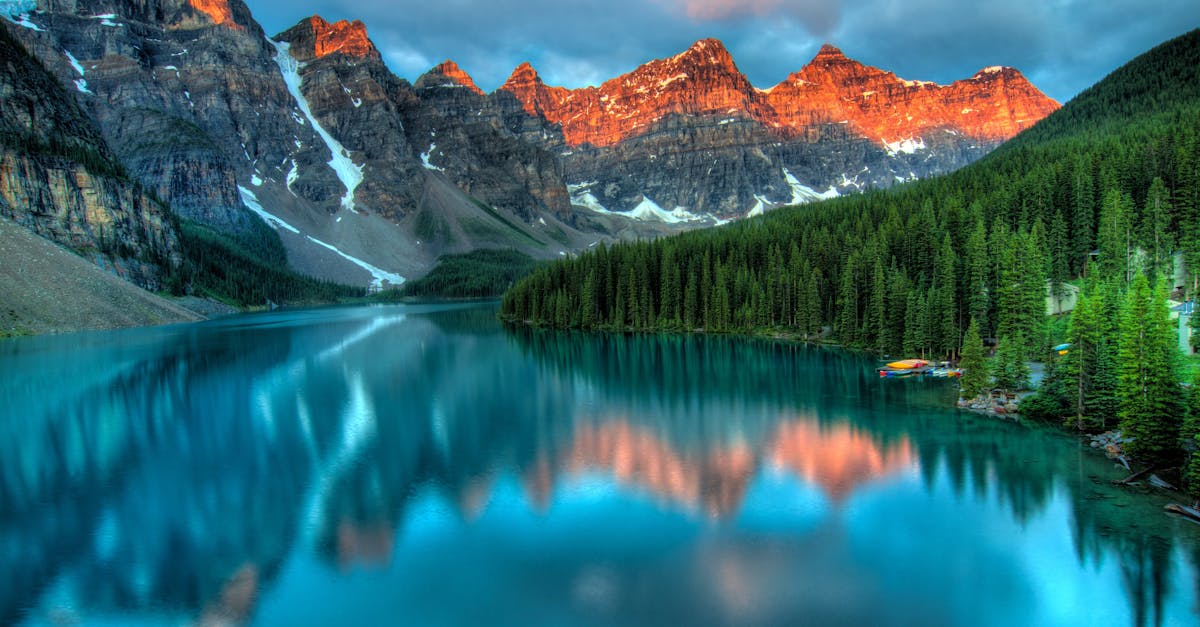Welcome to our exploration of why national parks are so important. As nature enthusiasts, we understand the immense value these protected areas hold for both us and future generations. From breathtaking landscapes to unique biodiversity, national parks offer a sanctuary for wildlife and a haven for adventure seekers. In our post, we’ll investigate into the significance of national parks, highlighting their contributions to conservation, education, and recreation. Join us as we uncover the wonders of these natural treasures and discover why they are vital for our planet’s well-being.
Key Takeaways
- National parks play a crucial role in conservation efforts by protecting biodiversity, preserving ecosystems, and maintaining natural processes.
- These protected areas act as gene pools, allowing species to adapt and evolve, ensuring their survival for future generations.
- National parks serve as invaluable educational resources, offering hands-on experiences to learn about the natural world, history, culture, and scientific research.
- They inspire individuals to become environmental stewards and promote sustainable practices.
- National parks also play a role in promoting sustainable tourism and recreation, offering opportunities for outdoor activities while preserving natural beauty.
- National parks have a significant economic impact, attracting visitors, creating jobs, supporting local businesses, and contributing to the overall economy.

The Conservation Value of National Parks
National parks hold immense conservation value, playing a crucial role in preserving the natural wonders and biodiversity of our planet.
They serve as sanctuaries for numerous species, protecting their habitats from threats such as deforestation and urbanization.
Let’s jump into why national parks are essential for the conservation efforts aimed at safeguarding our environment and ensuring the sustainability of future generations.
- Protecting Biodiversity: National parks act as vital strongholds for countless plant and animal species. With their diverse ecosystems, these protected areas provide a safe refuge for rare and endangered species. By preserving their habitats, national parks contribute to the conservation of biodiversity, preventing the loss of crucial genetic resources and supporting the delicate balance of our ecosystems.
- Preserving Ecosystems: National parks encompass a wide range of landscapes, from dense forests to pristine coastlines to expansive grasslands. These diverse ecosystems are home to intricate webs of plant and animal life, each playing a crucial role in maintaining the health and stability of the environment. By safeguarding these ecosystems, national parks ensure the continued provision of vital ecosystem services, such as clean air, fresh water, and carbon sequestration.
- Maintaining Natural Processes: National parks allow natural processes, such as natural fires, floods, and ecological interactions, to occur without human intervention. This hands-off approach enables the ecosystems within national parks to function naturally, promoting resilience and adaptability. By studying these natural processes, scientists can gain valuable insights into ecological dynamics and develop effective conservation strategies.
Website: To learn more about the conservation efforts in national parks, visit National Park Foundation
Summarizing, national parks hold significant conservation value by protecting biodiversity, preserving ecosystems, and maintaining natural processes.
These natural treasures are crucial for the well-being of our planet, allowing us to appreciate and learn from the wonders of nature.
Let’s continue our exploration of the importance of national parks in the next section.
Preserving Biodiversity for Future Generations
Preserving biodiversity is one of the primary reasons national parks are vital for current and future generations.
These protected areas serve as essential sanctuaries for numerous species, safeguarding their habitats from threats such as deforestation and urbanization.
By preserving their habitats, national parks contribute to the conservation of biodiversity, preventing the loss of crucial genetic resources and supporting the delicate balance of ecosystems.
National parks play a crucial role in protecting endangered species and preserving their populations.
By designating specific areas as protected habitats, national parks provide safe havens for these plants and animals to thrive, even in the face of habitat loss and climate change.
These protected areas act as gene pools, allowing species to adapt and evolve, ensuring their survival for future generations.
Also, national parks support the maintenance of ecosystem services that are essential for human well-being.
These diverse ecosystems not only support wildlife but also provide vital services such as clean air, fresh water, and carbon sequestration.
The protection of these natural processes in national parks is crucial for ensuring the long-term sustainability and resilience of ecosystems.
Scientific research conducted within national parks allows us to better understand the complexity of biodiversity and ecosystem dynamics.
By studying these natural processes, scientists can gain valuable insights into ecological interactions, species behavior, and the effects of human activities on the environment.
This knowledge can then be used to develop effective conservation strategies and ensure the long-term preservation of biodiversity.
By preserving biodiversity in national parks, we ensure that future generations can experience and learn from the wonders of nature.
The protection of these valuable habitats not only benefits wildlife but also provides us with a deeper understanding of ecosystems and our place within them.
Let’s continue to cherish and protect our national parks for the benefit of all.

National Parks as Educational Resources
National parks serve as invaluable educational resources, offering unique opportunities for individuals of all ages to learn about the natural world.
Here are a few reasons why national parks are important in terms of education:
- Experiential Learning: National parks provide hands-on experiences that engage and inspire visitors. From guided hikes to interactive exhibits, these parks offer a multitude of educational programs and activities. By immersing ourselves in nature, we can better understand and appreciate the complexities of ecosystems and the importance of conservation.
- History and Culture: Many national parks are rich in history and cultural significance. They offer a window into the past, allowing us to explore and learn about the indigenous peoples, pioneers, and events that shaped our nation. By uncovering the stories of our predecessors, we gain a deeper understanding of our shared heritage.
- Science and Research: National parks are living laboratories for scientific research. They provide scientists and researchers with a unique environment to study various aspects of biodiversity, ecology, climate change, and more. By conducting research within these protected areas, we can expand our knowledge and contribute to the scientific community’s understanding of the natural world.
- Environmental Stewardship: National parks inspire individuals to become environmental stewards. By experiencing the beauty and wonder of these protected lands, we develop a sense of responsibility and a desire to protect and preserve them for future generations. Education programs offered by national parks aim to promote environmental awareness and encourage sustainable practices.
- National Park Service – Official website of the National Park Service, the governmental organization responsible for managing national parks in the United States.
- National Geographic – A renowned organization that provides educational resources and information about national parks and nature conservation.
By utilizing national parks as educational resources, we can foster a deeper appreciation for nature, instill a sense of environmental stewardship, and inspire future generations to protect our precious natural heritage.
Promoting Sustainable Tourism and Recreation
When it comes to national parks, their value extends beyond conservation and education.
National parks also play a crucial role in promoting sustainable tourism and recreation.
Here’s why:
- Preserving Natural Beauty: National parks offer unspoiled landscapes, breathtaking vistas, and diverse ecosystems. By protecting these natural treasures, we ensure that future generations can enjoy their beauty.
- Balancing Tourism: National parks play a vital role in managing and regulating tourism activities. They establish guidelines to prevent overcrowding, protect vulnerable habitats, and minimize the environmental impact of visitors.
- Opportunities for Outdoor Recreation: National parks provide an array of recreational opportunities, from hiking and camping to birdwatching and wildlife spotting. These activities promote physical wellness, mental rejuvenation, and a deeper appreciation for nature.
- Supporting Local Communities: National parks can be a driving force for local economies. They attract visitors who spend money in nearby communities, supporting local businesses and creating jobs.
While national parks offer incredible tourism and recreational opportunities, it’s important to ensure that these activities are conducted responsibly.
By following park regulations, practicing Leave No Trace principles, and being mindful of our impact, we can enjoy these spaces while preserving them for future generations.
- The National Park Service’s Guide to Leave No Trace Principles
- The Leave No Trace Center for Outdoor Ethics’ Seven Principles of Leave No Trace

The Economic Impact of National Parks
National parks not only contribute to the conservation of our natural and cultural heritage, but they also have a significant economic impact.
These protected areas attract millions of visitors each year, generating revenue and supporting local communities through various channels.
Here are some key points to understand the economic significance of national parks:
- Tourism and Recreation: National parks are major tourist destinations, drawing visitors from all around the world. The natural beauty, diverse landscapes, and unique experiences offered by these parks make them popular attractions. The influx of tourists stimulates local economies by creating jobs, supporting local businesses, and generating revenue through visitor spending.
- Job Creation: National parks provide employment opportunities, directly and indirectly, in the surrounding communities. The need for park rangers, guides, maintenance staff, and hospitality services creates jobs for local residents. Also, the economic ripple effect extends to sectors such as hospitality, transportation, and retail, further boosting employment opportunities.
- Visitor Spending: Visitors to national parks contribute significantly to the local economy by spending on accommodations, meals, transportation, and recreational activities. These expenditures help support small businesses and drive growth in tourism-related industries. National Park Service data shows that in 2020, visitor spending supported approximately 237,000 jobs and contributed $28.6 billion to the U.S. economy.
- Gateway Communities: National parks often serve as gateways to nearby communities, providing opportunities for local businesses to cater to the needs of visitors. Hotels, restaurants, outfitters, and souvenir shops thrive from the presence of national parks, which helps diversify local economies and reduce dependence on a single industry.
- Real Estate and Property Values: The proximity of a national park can positively affect real estate values in nearby communities. The allure of living close to pristine landscapes and recreational opportunities contributes to higher property values and attracts homebuyers looking for an enhanced quality of life. This can bring economic stability and growth to the region.
It is essential to understand and appreciate the economic benefits that national parks bring to local communities and the overall economy.
By protecting these natural treasures, we can continue to enjoy their economic advantages for years to come.

